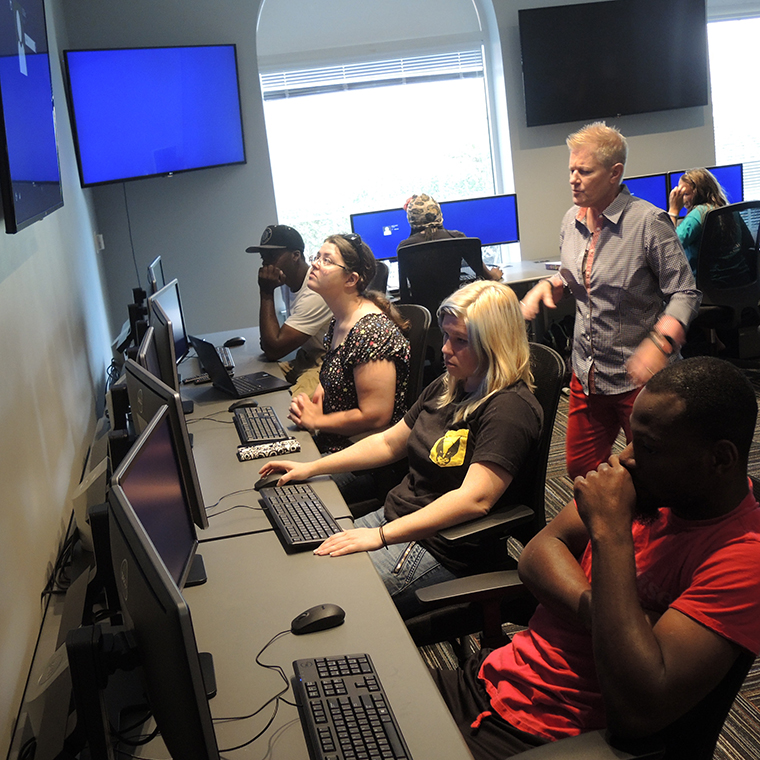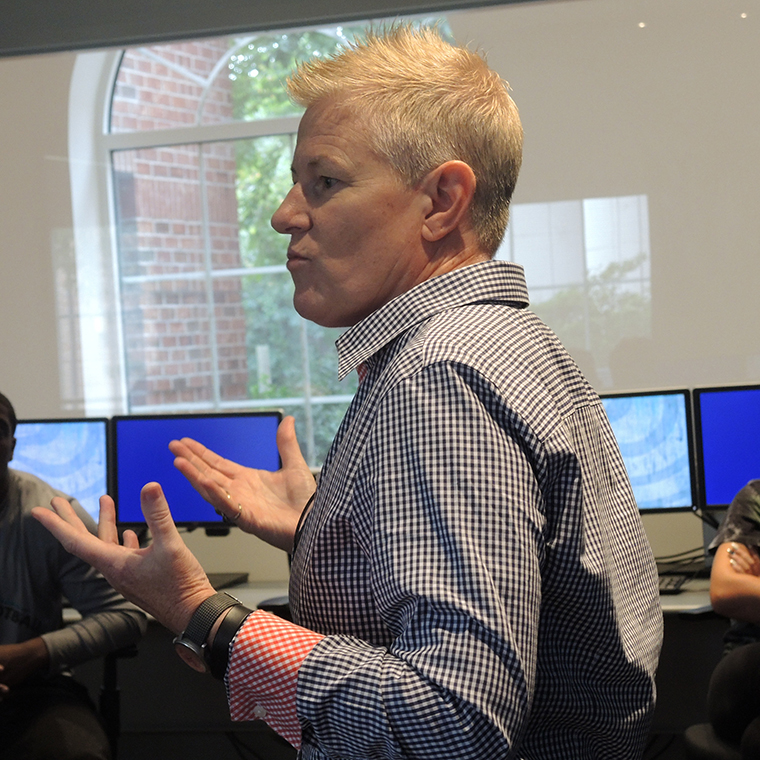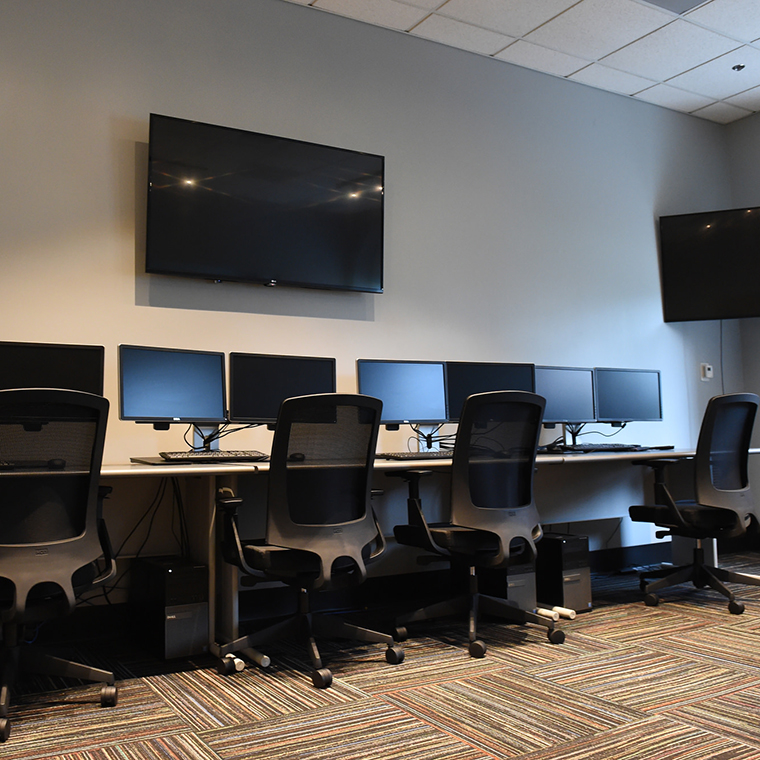New CCU degree program prepares students for the digital future
According to Jen Boyle, associate professor of English and coordinator of the program, CCU's new degree differs from most other digital technology majors across the country because it combines liberal arts-based critical thinking skills and experiential learning with intensive technical training.
"In addition to solid preparation in technical areas such as computer coding, animation, digital curation and Web design, students in the program will hone their skills in research, writing, critical thinking, cultural awareness and other skill-sets associated with a quality liberal arts education," said Boyle.
The program is project-oriented, requiring students to team with a faculty member by their junior year to create content that will give them experience in the production, distribution and management of a digital product.
By the completion of their degree, students will have a knowledge base and practical experience in creating, organizing, marketing and disseminating digital content across the spectrum of emerging new media platforms. The degree will provide training relating to many professional fields, including digital journalism, online editing and publishing, museum curation, social media research and marketing, Web design, gaming, animation, and archival management.
Collaboration is a key feature of the program, according to Boyle. "This degree reaches across the university curricula, involving English, communication, history, art, graphic design and computer science," she said. "Reflecting the workplaces of the 21st century, students will often work in teams to solve problems."
The program will employ a pedagogical approach called 'critical making,' which values the experience students gain through hands-on experimentation and critical inquiry as much as the finished outcome of a project.
The incoming cohort of students majoring in the new program will have access to the CCU's new humanities computing facility, the Edwards Digital Commons for Arts and Humanities, which features advanced 3D and animation computing, interactive conferencing, and a state-of-the-art interactive digital classroom. The program will be delivered in a hybrid format with both traditional and online courses.





